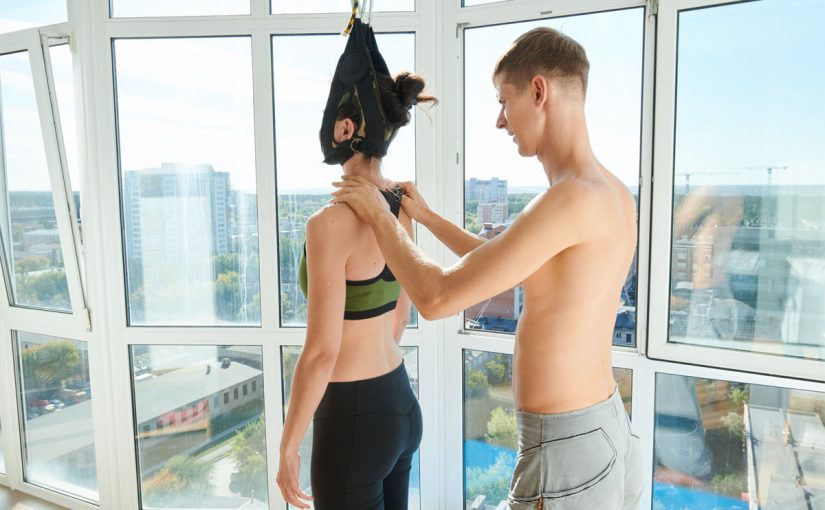In the field of medicine, traction is in reference to the practice of slowly and softly pulling on a dislocated or fractured part of the body. It’s typically done by way of weights, ropes, and pulleys. Using these tools helps apply pressure to the tissues surrounding the affected area.
What is the Purpose of Traction?
Utilizing traction is to guide the body part back into place and hold it firm. Traction can be used to:
- secure and realign bone fractures, like a broken leg or arm
- help decrease the pain of a fracture prior to surgery
- stretching of the neck and preventing painful muscle spasms
- treat bone deformities caused by a specific condition, like Paget’s Disease
- to right stiff and constricted skin, joints, muscles, or tendons
Are there Different Kinds of Traction?
Yes. The 2 main kinds of traction are skin and skeletal traction. The type of traction required will depend on where it is located and how severe the issue is.
Skeletal Traction
Skeletal traction comprises of placing pins, wires, or screws inside the fractured bone. After these devices has been embedded, weights are attached to them so the bone can be moved into the correct position. This kind of surgery can be done utilizing general, spinal, or a local anesthetic to hinder you from feeling pain throughout the procedure.
The time needed to perform skeletal traction depends on if it’s preparation for a more intricate procedure or just the only surgery that will be done to let the bone heal.
Skeletal traction is mostly used to treat fractures of the thighbone or femur. It’s also the preferred technique when a greater force is required to be applied to the impacted area. The force is applied directly to the bone, meaning more weight can be added with less chance of damaging the encompassing soft tissues.
Skin Traction
Skin traction is a lot less intrusive than skeletal traction. It involves the application of splints, bandages, and/ or tapes to the skin exactly under the fracture. After the materials have been applied, weights are attached to it. The impacted body part is then drawn into the correct position utilizing a pulley system fastened to the hospital bed.
Skin traction is utilized when the soft tissues, like muscles and tendons, are required to be repaired. Reduced force is applied throughout skin traction to stop from aggravating or damaging the skin and surrounding soft tissues. Skin traction is seldom the only treatment required. However, it’s typically used as a momentary way to stabilize the broken bone until the exact surgery is carried out.
Cervical Traction
Throughout cervical traction, a metal brace surrounds your neck. The brace is then fastened to weights or a body harness, that is used to assist in correcting the affected area. Cervical traction is carried out utilizing a general anesthetic, so you will be asleep during the whole procedure.
Cervical traction could be used in 2 different situations. First, it can be done to lightly stretch the muscles in your neck so muscle spasms can be prevented or alleviated. It can also be carried out to secure the spine following a neck injury.
Glendale, AZ Chiropractic Care
We Care Chiropractic Clinic offers Corrective Exercise in Glendale, Arizona. We specialize in providing relief from a wide variety of common chiropractic problems. Contact us today at (623) 825-4444 for more information.
